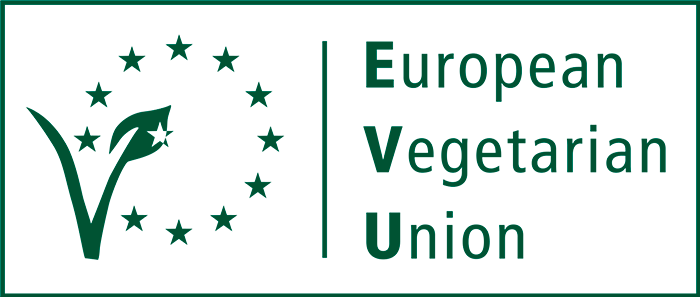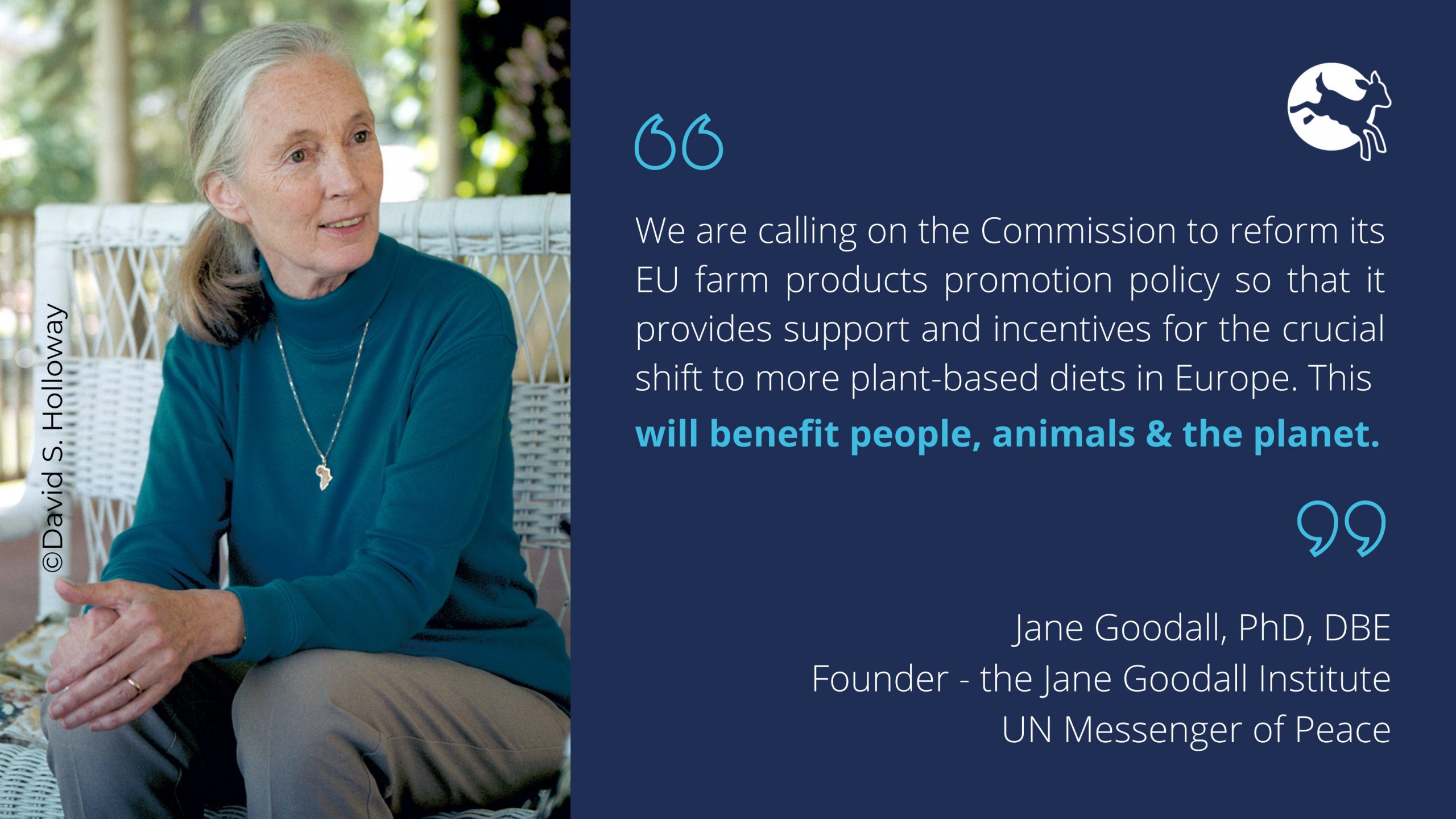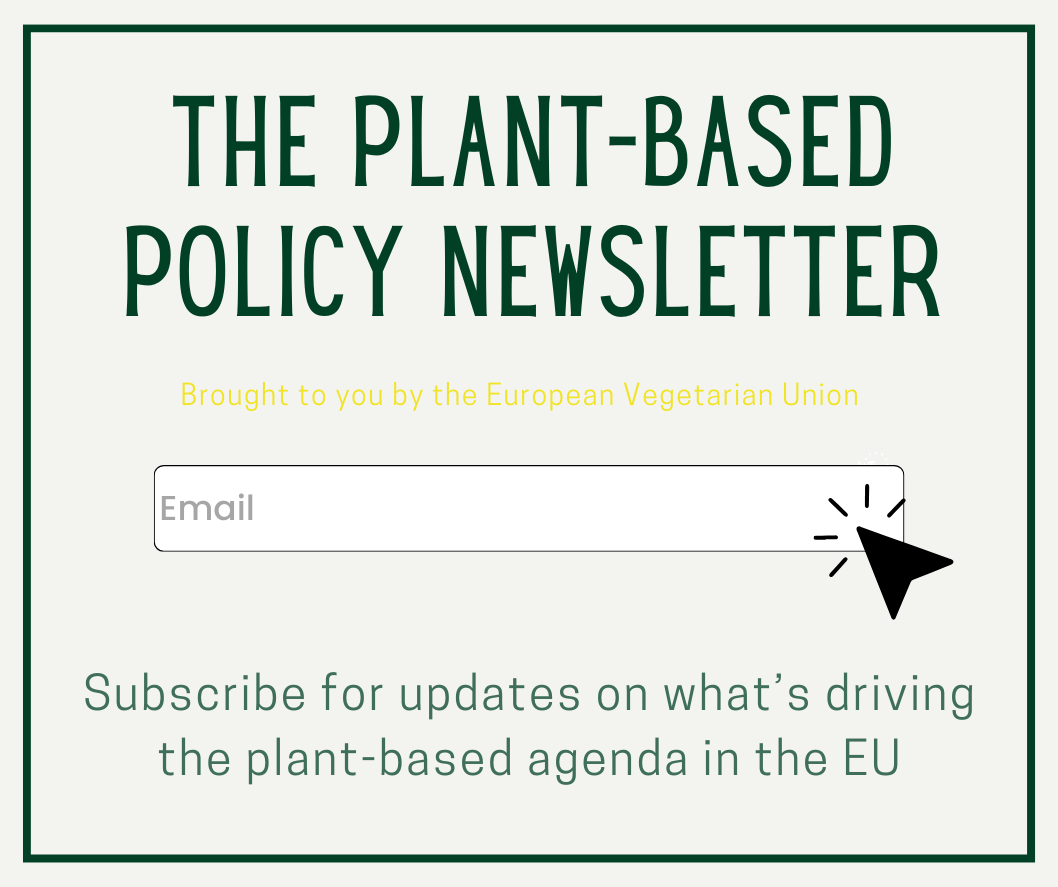In a letter to the Commission sent on 24 June 2021, the scientists note that recent Commission policy documents such as the Farm to Fork strategy for a healthier and more environmentally sustainable food system and the Beating Cancer plan recognise the need for a shift to more plant-rich diets.
Yet perversely, they point out, in recent years the Commission has spent nearly one third of its 200 million euro annual budget for promoting agricultural produce on advertising animal products — in some cases funding up to 80% of marketing campaign costs. Some of these campaigns have explicitly aimed at reversing a decline or maintaining growth in meat consumption. “This policy needs reform so that it supports public health, environmental protection and animal welfare instead of putting them at risk,” the letter says.
Dr Goodall, who is a vocal supporter for plant-rich food systems, comments: “The European Commission’s recent food and cancer policies show it well understands the need for a shift away from animal products towards more plant-rich diets, but its policy for funding food ads doesn’t yet reflect this: it seems important that these conflicting messages be brought into line. We are calling on the Commission to reform its EU farm products promotion policy so that it provides support and incentives for the crucial shift to more plant-based diets in Europe. This will benefit people, animals and the planet.”
Jane Goodall, PhD, DBE
Founder – the Jane Goodall Institute & UN Messenger of Peace
In the letter, the scientists point out that the high levels of consumption of red and processed meat made possible by industrial production are contributing to heart disease, obesity, diabetes, and certain cancers. The World Health Organization’s International Agency for Research on Cancer has classified processed meat as carcinogenic to humans and red meat as probably carcinogenic.
They add that ‘a tsunami’ of over-production and over-consumption of animal products in the EU is overwhelming nature. Almost 70% of EU greenhouse gas emissions from agriculture come from animal farming and much of the soy the EU imports for animal feed is from deforested land. The intensification of EU crop production to grow the concentrate feed demanded by industrial animal production is causing soil degradation, overuse, and pollution of water, as well as air pollution.
EVU’s Ronja Berthold comments: “This is an important sign for the European Commission to reconsider what they are promoting and at what costs. We cannot afford to continue such policies without at least adapting them to the current food and environment landscape. As EVU we have contributed to the Commission’s public consultation on this programme and expressed our wish that such policies be rather used for educational campaigns on planet and human health-friendly diets and the benefits of plant-based foods. We are grateful that over 60 scientists have also approached the Commission with such demands.”
The text of the letter and the full list of signatories is available here.


